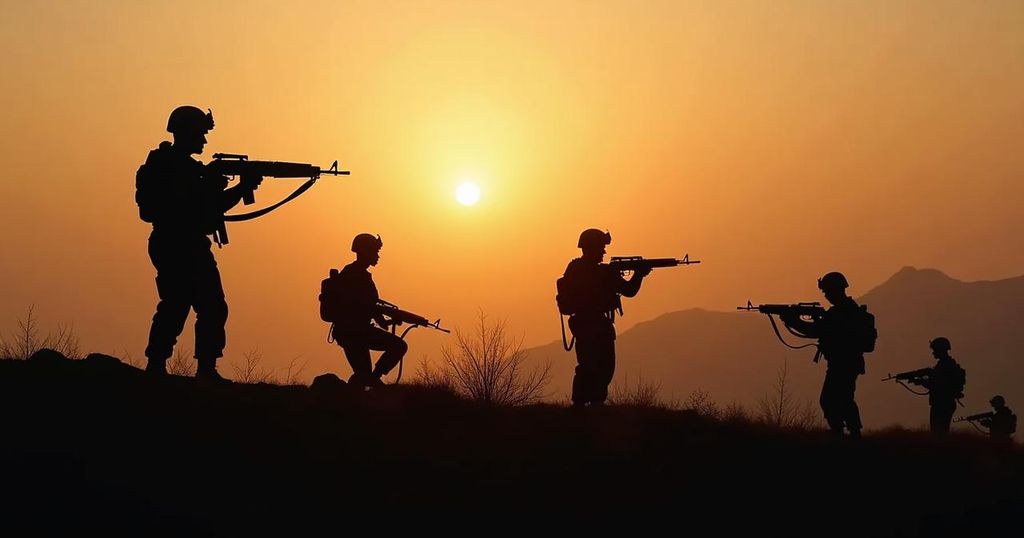Israeli Forces Initiate Ground Offensive Against Hezbollah in Southern Lebanon
Israeli forces have launched a ground offensive in southern Lebanon as part of a significant escalation against Hezbollah following the death of its leader, Hassan Nasrallah. The military actions include artillery bombardments and airstrikes across the region, raising concerns over the potential for broader conflict involving Iran.
On Tuesday, Israeli ground forces commenced a “limited, localized and targeted” operation in southern Lebanon, escalating their ongoing conflict with Hezbollah. This ground incursion marks a significant development in a yearlong confrontation, particularly following a recent airstrike that resulted in the death of Hezbollah’s leader, Hassan Nasrallah. Even as ground operations are initiated, Israeli artillery has conducted extensive bombardments across southern Lebanon, creating a backdrop of continued airstrikes that reverberated throughout Beirut. Reports indicate that the Israeli military has claimed that these targeted operations are necessary to counter immediate threats posed by Hezbollah in border regions. The tactical choices follow a phase of intensified military actions by Israel, including an airstrike campaign against Hezbollah leaders and infrastructure, aiming to dismantle the group’s operational capacity. However, the current military engagement may elevate tensions further, potentially drawing Iran into the conflict, given its long-standing alliance with Hezbollah. Iran’s Supreme Leader, Ayatollah Ali Khamenei, has declared that Lebanon will retaliate against the “malicious enemy,” reflecting the fragile balance of power in the region. Despite facing internal resistance to retaliation, Iran’s officials have cautioned against any actions that could undermine national security interests. These developments underscore Iran’s complex position where it must weigh regional influence against domestic challenges. Meanwhile, Hezbollah has been actively engaging in missile launches towards Israel, indicating that the group may be leveraging its resources strategically amid these upheavals.
The recent escalation in southern Lebanon follows a protracted period of conflict between Israel and Hezbollah, which has spanned decades. The killing of Hassan Nasrallah marked a pivotal moment for both Hezbollah and Iran, with significant implications for regional stability. Historically, Israel and Hezbollah last engaged directly in a month-long war in 2006 that concluded in a stalemate. The current military actions reflect a calculated shift by Israel to challenge Hezbollah’s foothold in southern Lebanon, alongside the broader geopolitical tensions influenced by Iran’s regional ambitions. As Israel seeks to diminish Hezbollah’s capabilities, both the Lebanese civilian population and surrounding nations remain on high alert for a potential escalation.
In summary, Israel’s initiation of a ground offensive in southern Lebanon signifies a critical turning point in its ongoing conflict with Hezbollah, opening a new front in a manner that aims to dismantle the group’s operations while also signaling to Iran. The outcome of this incursion remains uncertain, as the potential for broader regional conflict lingers, particularly given Iran’s strategic interests in the region and Hezbollah’s retaliatory capabilities. The situation continues to evolve, necessitating close observation of developments in both military and diplomatic arenas.
Original Source: apnews.com




Post Comment